Towards a new paradigm for MEAL for health data
The ActivityInfo team would like to thank Mr. Emanuele Lini, MEAL (Monitoring, Evaluation, Accountability and Learning) Advisor in the international program department in Medicos del Mundo for his valuable insights in this Case Study.
Medicos del Mundo (MdM) or Medecins du Monde, Spain is a health organization providing emergency and long-term medical care to vulnerable populations worldwide. The organization specializes in public and community health and promotes the right to public, quality health for all. They are currently present in 16 countries but the number often changes due to emergencies as new missions are established.
Towards the end of 2020, the international programs department was looking for an alternative to Excel spreadsheets to track indicators related to the work done in various countries. At the same time, the domestic programs department was launching a tender to replace their existing user database platform. ActivityInfo was selected to fulfill both departments’ requirements thanks to the flexible nature of the platform. Since then, the international programs department has been extending the use of the platform to cover various information management needs ranging from case management to surveys and from indicator reporting to overall project management. Parallel to that, the domestic programs department has been working on a big migration project moving thousands of records from the previous system to ActivityInfo.
“Many companies presented their software. ActivityInfo was the most flexible solution for both departments. It allows us to serve the needs of both departments. We don’t need to contact the provider and spend a lot of funds every time we want to do some changes. So we considered it a value for money solution. And the ActivityInfo team is listening to us which is very important because that means that we are growing together”, explains Mr. Lini.
This change has impacted the way the organization as a whole approaches Monitoring and Evaluation and ‘sparked a change in the mindset’ of many colleagues as working on the ActivityInfo platform replaced complex, time consuming tasks.
“The impact is huge. Even though we still don't have a Monitoring and Evaluation system in every country, in the countries where we do have more technical resources, we can easily prepare reports for donors in real time. We know how many people have attended a consultation or how many activities we have developed and we can calculate our indicators. In the past, this was very complex work involving a lot of steps which are now reduced. This is something that was very annoying, preventing us from doing indicator follow-up systematically”, adds Mr. Lini
Up until today the organization’s MEAL requirements were corresponding to the donor requirements. Today however, Medicos del Mundo is developing a new strategic approach to MEAL supported by an internal restructuring which will allow the domestic and international department to leverage the information collected and managed in ActivityInfo so as to be able to report as a whole to the Strategic indicators of the organization.
In this Case study, we will take a look at various ways the international programs department of the organization leverages ActivityInfo to satisfy the diverse information management needs across countries.
Making Case management more efficient: Coordinating case managers and health data of three countries in Central America
Medicos del Mundo is carrying out a migration program to tend to the needs of the migrating population in need of primary health care while moving from one country to the other. There is a large number of beneficiaries involved across three countries, El Salvador, Honduras and Guatemala. To make data collection and data management easier for the Central America teams, the regional coordinator issued a mandatory statement to ask all countries to start using ActivityInfo to collect information instead of paper and Excel spreadsheets. As a result, the data of over 14,000 beneficiaries were added to the platform.
The use of ActivityInfo sparked a change of mindset in the countries in relation to data despite some initial resistance to change.
“In Central America, we managed to change the mindset because the countries saw the results. When people see results, they start to change their mindset. For example, when we use a form instead of paper, it prevents us from entering wrong important data such as age, weight, date, etc“, says Mr. Lini.
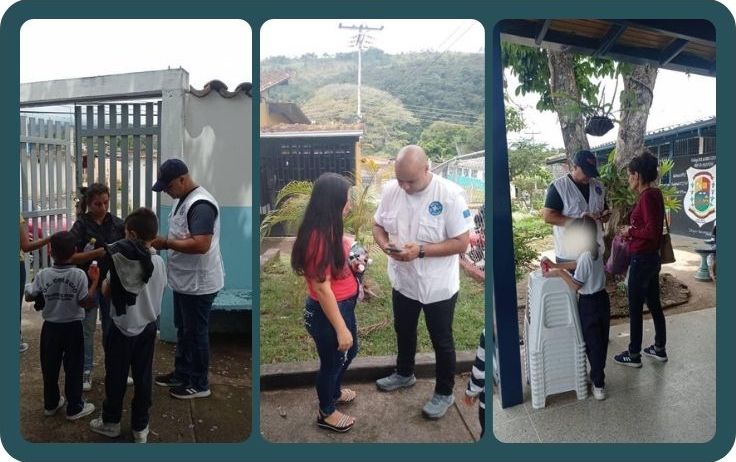
Using forms and subforms, the MEAL team creates a flexible structure that allows case managers to collect different types of information about each beneficiary in one place. The main form collects information about the beneficiary and then multiple subforms can be filled in for the same beneficiary for the different types of care they might be assisted with. This makes it very easy for the case managers working with the beneficiaries to access the history and types of care each beneficiary has access to via their mobile devices.
At the same time, thanks to the relational database model on which ActivityInfo is based, this information can be connected to the different projects that are ongoing. This simplifies reporting for donors as the MEAL team can filter the primary data to get the exact information they need or analyze them further to get totals and disaggregations for their reach.
“We created one form to collect data about almost 18,000 beneficiaries for the three countries where we are working right now, El Salvador, Honduras and Guatemala. In this, we added subforms for each type of care such as primary health care, sexual and reproductive care, gender-based violence care and mental health, psychological support care, etc. With them, we are doing the follow-up. So if the same person needs to be assisted for multiple types of care, we can open different subforms, collect data, and do the follow-up for them in one place. Then, at any time, the case manager in Central America can use their tablet or smartphone to easily look for the people that we are consulting, and read their history“
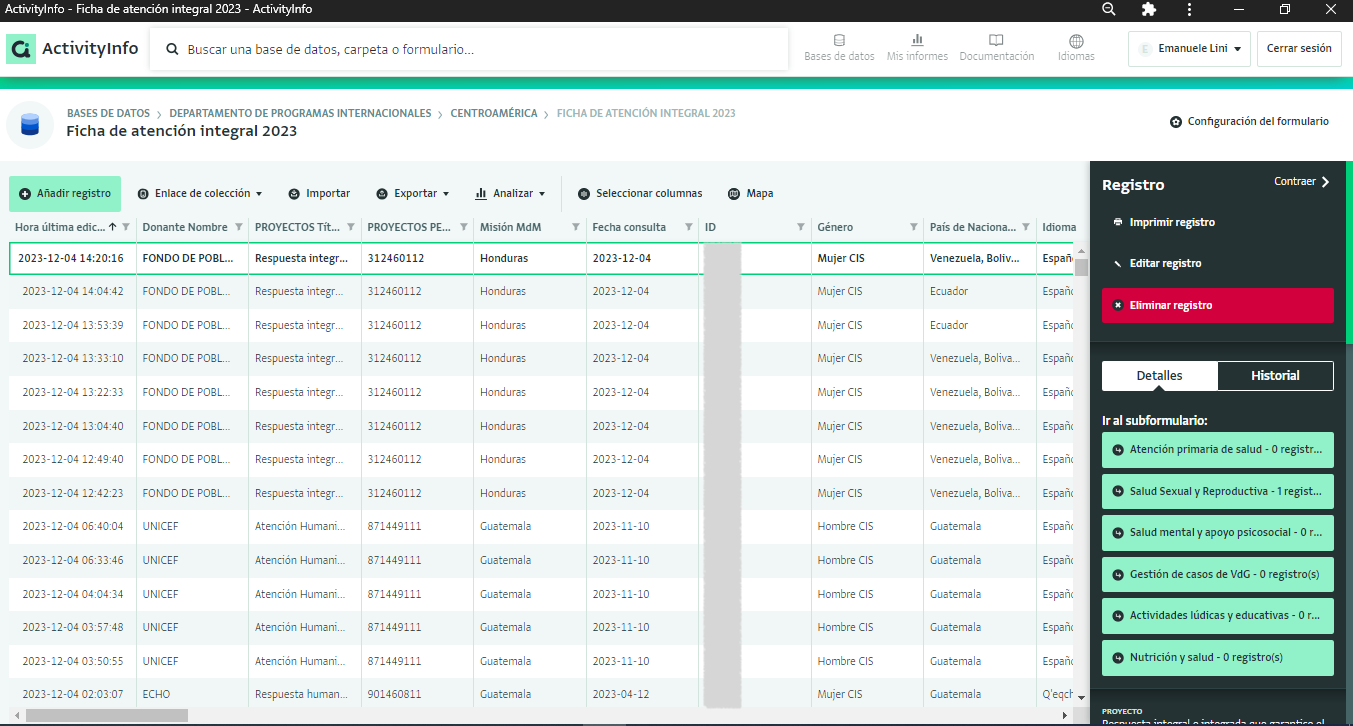
Another good thing is that we can connect all this data to different projects so we can filter it by projects or by donors and by time and we can easily create reports for donors showing the number of consultations, of people assisted, and breakdowns such as gender, type of situation of migration, range of age, and more”, explains Mr. Lini.
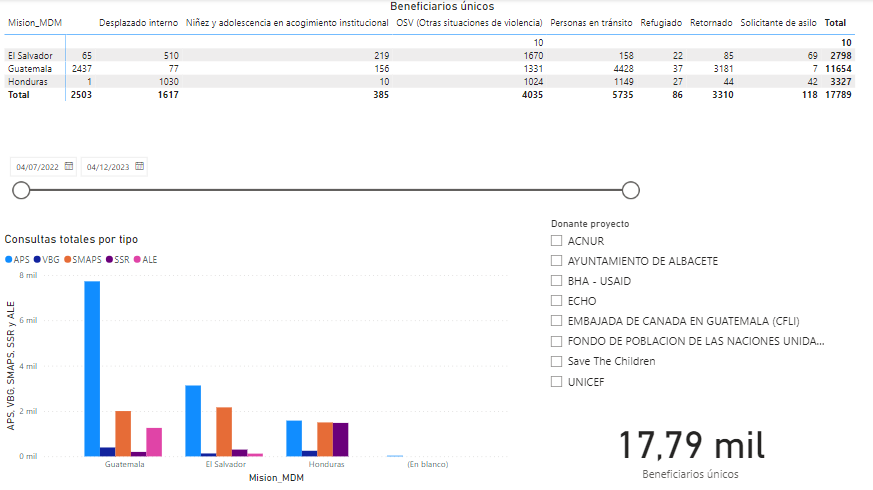
The domestic programs department also uses ActivityInfo for case management of programs running in Spain. They also track activities carried out in different projects; they register participants and evaluate their performance (i.e., in case of training). In Venezuela, for instance, the MEAL Staff is using ActivityInfo to track activities and collect data to get epidemiological evidence in order to improve the decision making about the project implementation. They eventually created a bulletin to visualize the improvement of project funded by ECHO in real time:
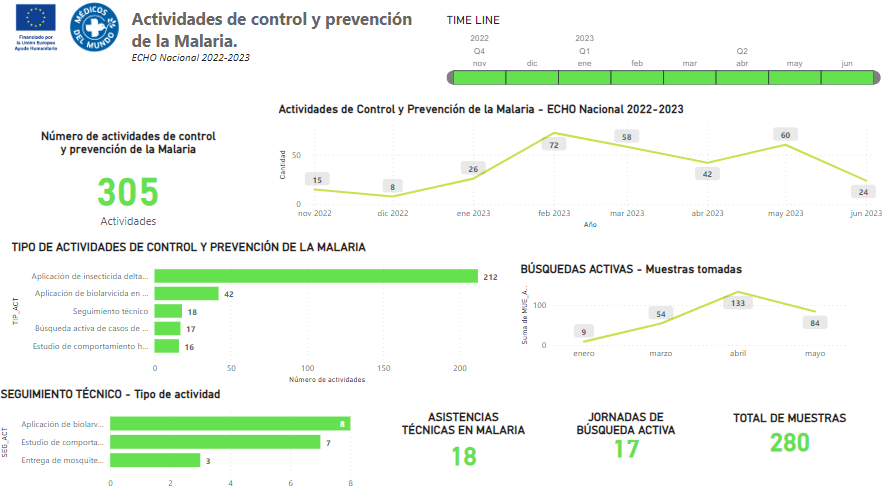
Conducting studies and running surveys: Needs assessment for South Sudan and Feedback and Complaint in Ukraine
Medicos del Mundo found more ways to use the platform. In addition to case management, they started conducting baseline surveys and needs assessments. For example, the organization used the platform to do an assessment so as to present a new project for South Sudan to a donor.
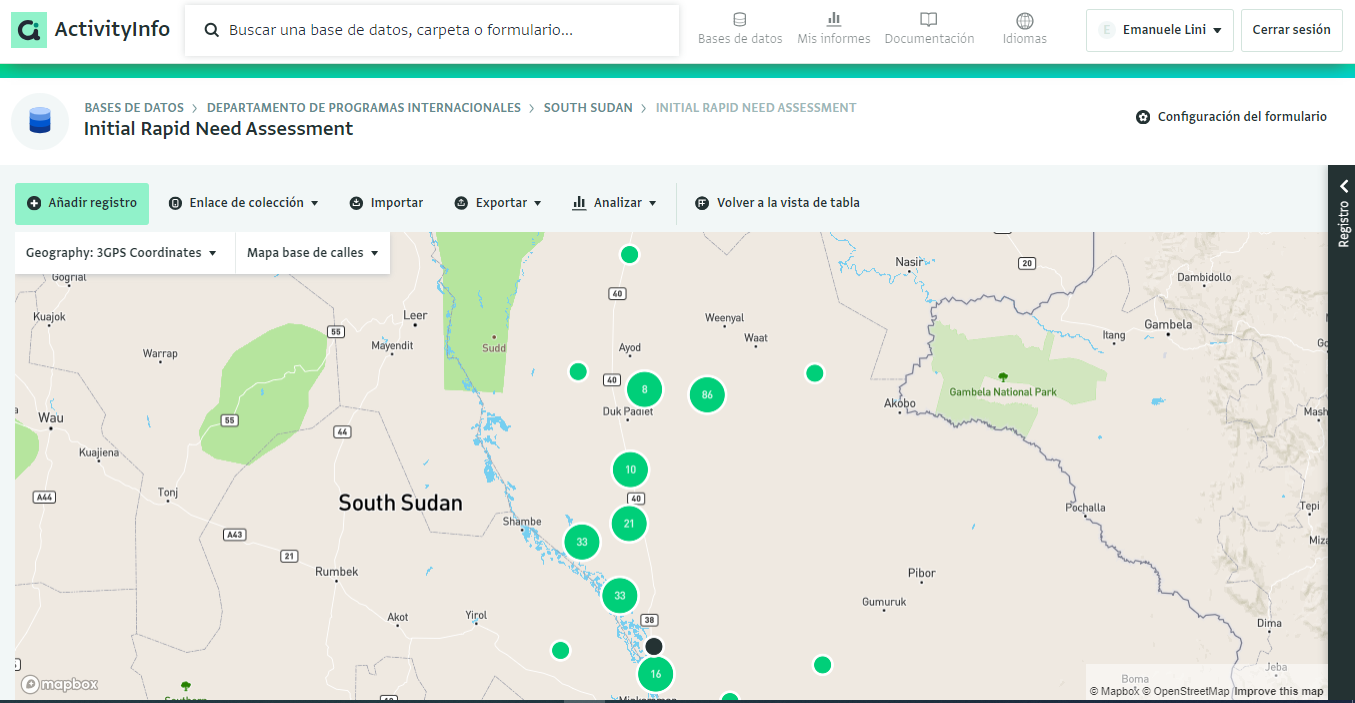
They used forms in ActivityInfo to collect answers to questions addressed to key informants during focus groups. Thanks to the offline capabilities of the platform, they were able to collect answers from remote areas.
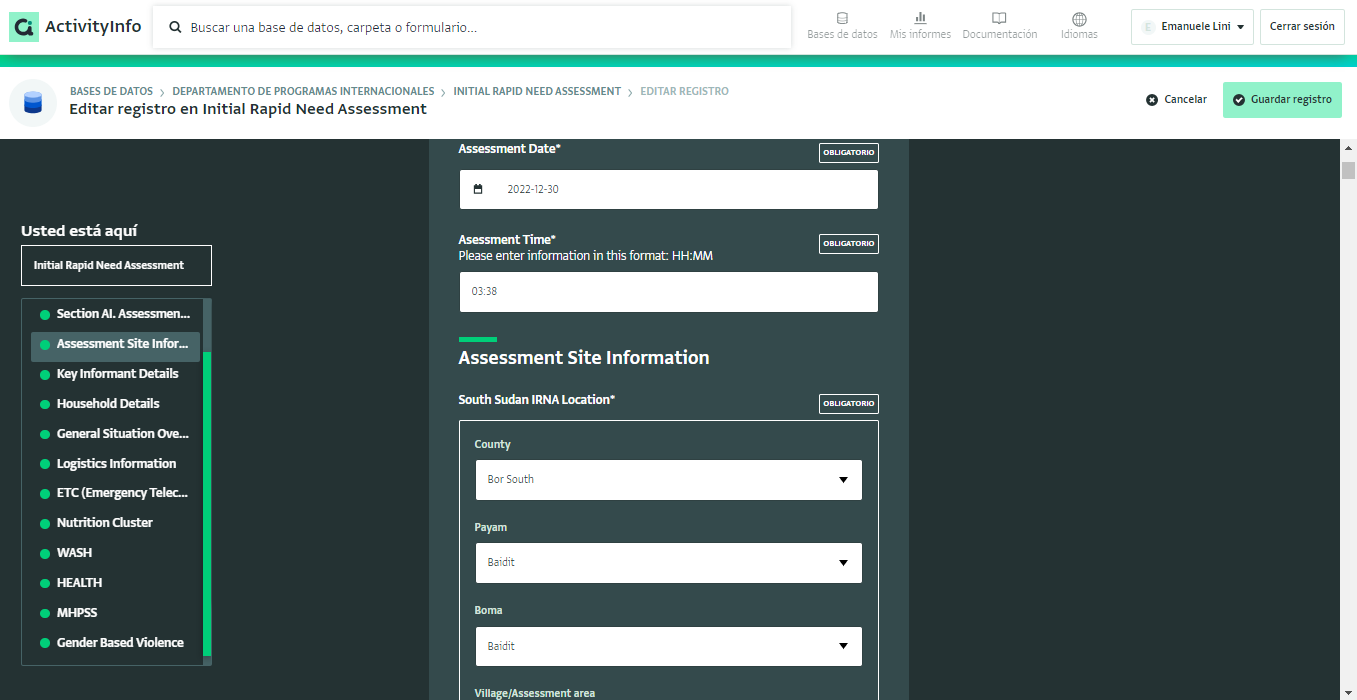
Also, because of the flexibility of the database model, they were able to address different sections about multiple areas in the same survey (i.e. water sanitation and mental health, primary health and shelter, etc.). Then, they were able to analyze all the data and provide a needs assessment report to the donors.
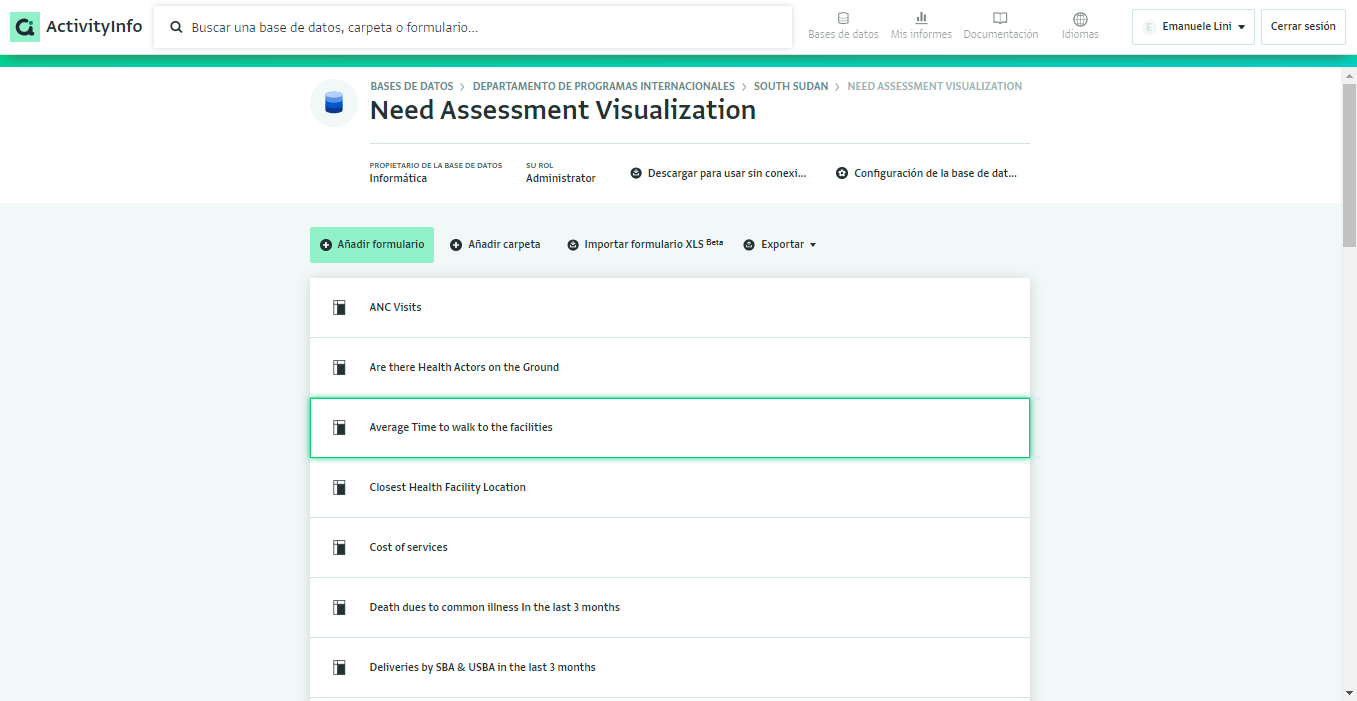
Another example of usage of ActivityInfo for performing surveys is the one in use in Ukraine to get feedback and complaints from the ‘Mobile Unit Users’. Data are visualized in real time via API in Power Bi:
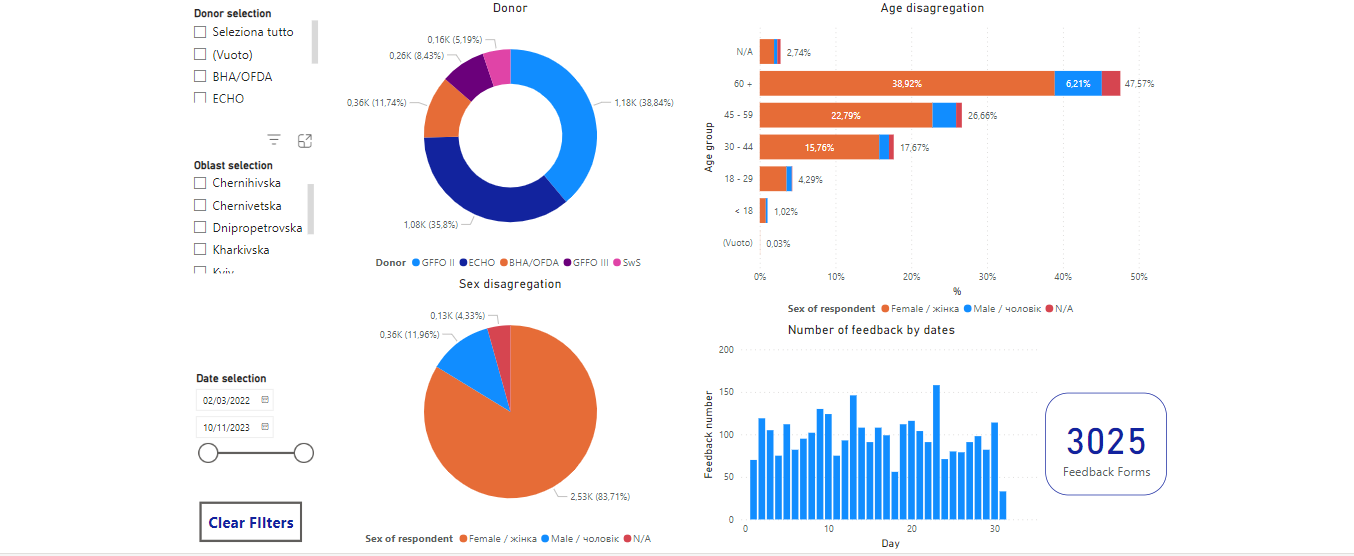
Working fast in health emergency situations: The Morocco earthquake
Another example is the use of the platform in Morocco following the devastating earthquake in September 2023. Medicos del Mundo is currently on an exploratory mission in the field collecting information about the affected population.
The use of the ActivityInfo platform saved a great amount of time for the teams collecting information in the field. This was crucial as data had to be collected very quickly due to the situation. The deployed team was able to quickly set up forms to collect mental health and psychological support data without extensive technical knowledge.
“In some of the countries, we have some very skilled professionals. ActivityInfo is a user-friendly application and it is easy to work with. So people with little knowledge, for example of Kobo Toolbox, can easily create simple forms to collect primary data” says Mr. Lini.
In addition, the relational database model decreased the time spent on form design as it was possible to reuse existing forms simply by automatically translating and slightly adjusting them to the situation (MHPSS Morbidity list).
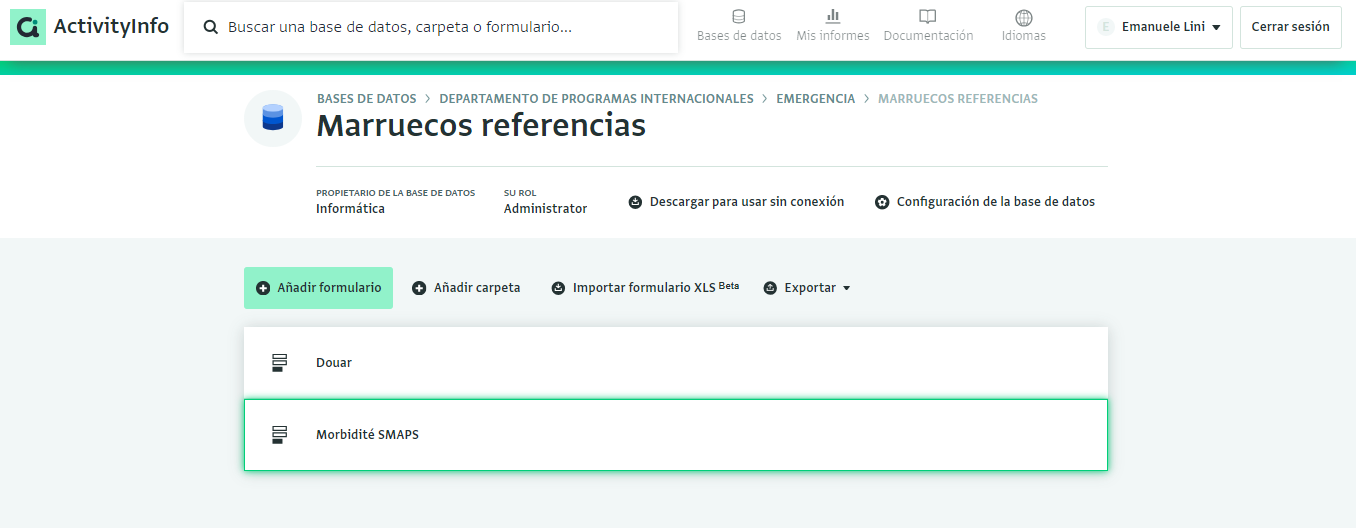
“We used the list of mental health morbidity that we had created for Central America. We translated it into French and referenced that form in the form created for Morocco. We added a few more items as records and the work was done. This was very useful for us because we could just adapt the work that we had done previously in this area”, explains Mr. Lini.
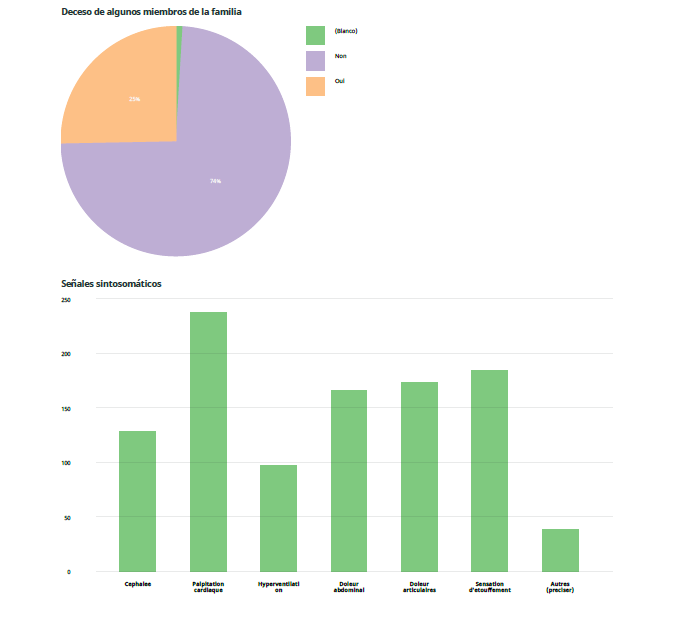
Project management and indicator reporting
Finally, the organization is in a process of exploring options for bringing together data collected at the country level to meet the needs at the strategic level. The plan is to use ActivityInfo forms to collect data related to the logical frameworks of each project including project indicators and then link these to another form containing the list of indicators of the Strategic plan.

In addition, integrating the platform with Power BI will help create dashboards for the department to calculate how close they are to reaching their targets.
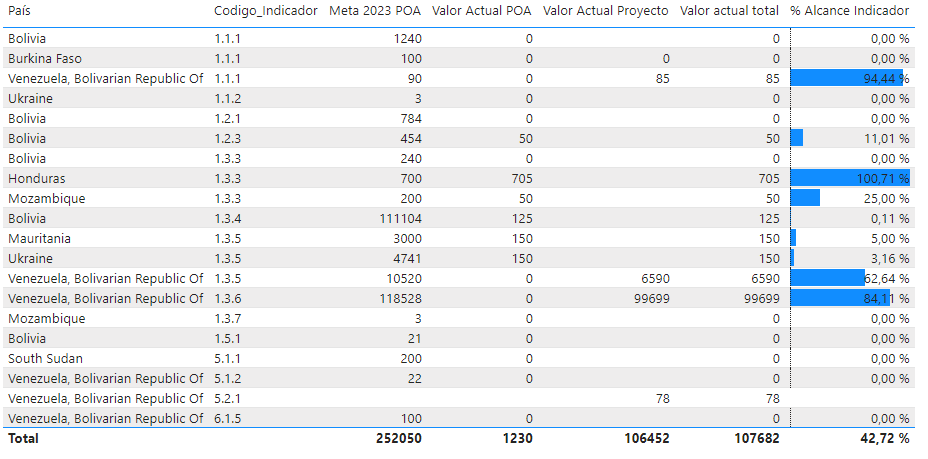
Training and expanding the use
Today, there are over 490 colleagues managing health data on the platform and 10 out of the 16 countries where Medicos del Mundo is present use ActivityInfo on a daily basis. The use of the platform varies. In some countries, the teams collect primary data, in others secondary data and in some countries they are tracking activities or doing the follow up with the patients.
The team designing databases and forms in the platform consists of approximately 20 people spread across countries and in the HQ. In case of emergencies, a colleague is deployed to support but thanks to the ease of use of the platform the rest of the team can start working on it quickly. When needed, additional support and training for more advanced features is conducted.
As for the use of the platform, the organization does not have a mandate for country offices to use ActivityInfo so far but it is expected to have one in place by the first-half of 2024. Depending on each country's needs and availability of human resources, right now the HQ MEAL team is offering support to countries that wish to start using the platform. In cases where a system starts from scratch this is easier as there is no alternative system in place.
“To our MEAL officers, we say ‘this is a very flexible software so use it to do what you need’. Then, we give them tips on how to use it and we prepare with the help of the Customer Success team trainings, manual, guides and presentations. And I encourage people to look at this material when they get started. When we have some support from people in the country like coordinators who actually understand the importance of using a unique database, adoption is easier”, explains Mr. Lini.
In some cases, there are limitations due to changes in prioritization resulting from emergencies.
“The idea is to train all the people but we need to face the limitations that we have in some countries. For example, in some countries we don't have monitoring and evaluation officers or enough people or time to collect data systematically and there are many differences between the countries affected by donor funding”, concludes Mr. Lini.
Conclusion
All in all, Medicos del Mundo chose ActivityInfo as a platform to support the information management needs of two distinct departments. Soon, the international programs department discovered a variety of ways to leverage the platform’s features and expanded its use to case management, surveys, emergency assistance and project tracking. The domestic programs department followed by building a system for case management for projects running in Spain.
Thanks to the flexibility of the platform, the organization saw a change in the mindset of people working with data as they were able to see quicker results. In addition, Medicos del Mundo is reimagining their approach to MEAL as a whole and creates a plan to bring together data from all countries and domestic projects so as to provide a comprehensive overview for the Strategic indicators of the organization.
The ActivityInfo team would like to thank Mr. Emanuele Lini, MEAL (Monitoring, Evaluation, Accountability and Learning) Advisor in the international program department in Medicos del Mundo for his valuable insights in this Case Study.